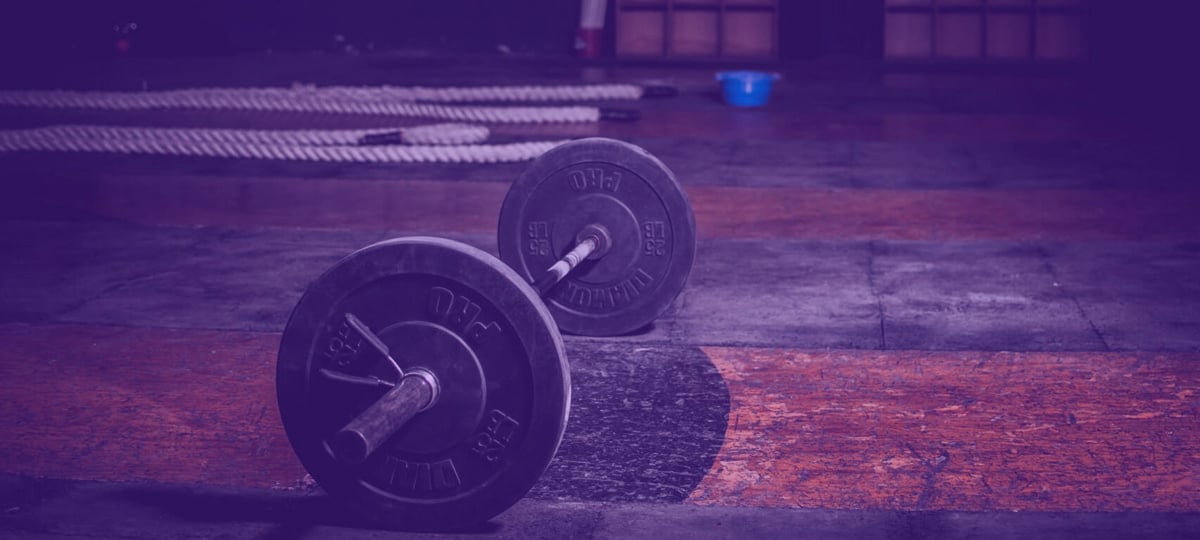
The demand for elite developers has never been higher. But standing out today requires more than technical proficiency — it demands mindset, discipline, and a commitment to continuous growth.
At X-Team, we believe that remote work isn't just a convenience — it's an opportunity to level up your career faster than ever before. When you embody the right traits, you become not just a contributor, but a catalyst for innovation, progress, and long-term success.
If you want to be the kind of developer who companies actively seek out and trust with their most important work, these are the traits you need to cultivate.
Lead With Passion
Passion is the foundation that fuels greatness. It’s what keeps you pushing through late-night debugging sessions, endlessly refining features, and constantly looking for ways to do better.
When you love what you do, it shows — in your attention to detail, your creativity, and your resilience.
You don’t just clock in and clock out. You care about the code you write, the products you build, and the people who use them. You dive into side projects because you're curious. You read documentation not just to fix bugs but to understand how things work under the hood.
Teams want developers who bring energy and enthusiasm to their work because passion is contagious. It lifts up entire teams and drives projects toward success.
If you find yourself losing excitement, reconnect with why you started coding in the first place. What problems did you dream of solving? What impact did you hope to make? Keep that passion alive — it’s your edge.
Stay Self-Motivated
Remote work offers freedom — but it also demands self-discipline.
Without the structure of a traditional office, it's easy to drift. The best developers don't wait for a manager to hand them a to-do list. They plan their days, set their own goals, and keep moving forward no matter what.
Self-motivation isn’t about feeling fired up all the time. It’s about building habits that help you move through moments of resistance.
Create a daily schedule that works for you. Break big goals into smaller, achievable steps. Celebrate your own wins. When you treat your career like a marathon, not a sprint, you build the internal drive that powers long-term success.
Remember: Motivation gets you started. Discipline keeps you going.
Communicate Proactively
In remote teams, communication isn’t just a nice-to-have — it’s your lifeline.
When you're working across time zones, you can’t rely on hallway chats or last-minute reminders. Clear, timely communication keeps projects moving and builds trust with your teammates.
Don’t make people guess where you’re at with a task. Post updates, flag blockers early, and confirm expectations. Assume positive intent when things go wrong, and seek clarity before jumping to conclusions.
Great communication isn’t just about being verbose — it’s about being precise, thoughtful, and responsive.
Remember: The best developers aren’t just great coders. They’re great communicators.
Build Trust Through Reliability
It doesn't matter how talented you are if people can't count on you.
Reliability is one of the most underrated (and most valuable) traits you can bring to a remote team. When you commit to something, you deliver — no excuses, no last-minute surprises.
You show up on time for meetings. You complete work by agreed deadlines. If a delay is unavoidable, you communicate early and offer solutions, not just problems.
Trust is built over time through consistent action. And once you’ve earned it, you’ll find doors opening for bigger projects, leadership roles, and opportunities you never even imagined.
Aim to be the developer your team never has to worry about. Reliability is your reputation in action.
Commit to Continuous Learning
Tech moves fast — and so should you.
Languages evolve. Frameworks improve. New best practices emerge seemingly overnight. The developers who thrive aren't the ones who cling to what they know — they’re the ones who stay curious, adaptable, and hungry to learn.
Read documentation regularly. Explore new languages even if you don't "need" them yet. Watch talks from industry leaders. Tinker with open-source projects.
And don't just learn technical skills — grow your understanding of product thinking, business strategy, and user experience. The more dimensions you add to your skill set, the more valuable you become.
Your future self is being built by what you choose to learn today.
Solve Problems, Not Just Tickets
Anyone can mark tasks as “done.” Great developers dig deeper.
They don’t just fix the symptoms; they find and fix the root causes. They ask questions like, “Why does this bug happen in the first place?” and “Is there a better way to design this flow?”
Solving problems requires critical thinking, empathy for users, and a willingness to challenge assumptions. It’s not about showing off how smart you are — it’s about making things better for your team, your customers, and your company.
Be the developer who doesn’t just complete tasks — be the one who makes systems stronger, more efficient, and more future-proof.
Problem-solvers don't just execute the roadmap — they shape it.
Stay Humble, Stay Curious
Confidence gets you a seat at the table. Humility keeps you growing once you’re there.
When you’re humble, you’re open to feedback. You’re willing to admit when you don’t know something — and excited to learn it. You recognize that every project, every collaboration, is a chance to get better.
Curiosity fuels your humility. It keeps you asking questions, trying new approaches, and seeking out fresh perspectives.
No one knows everything. Even the most senior engineers have blind spots. What sets the best developers apart is their willingness to keep learning, adjusting, and improving, year after year.
Stay curious, stay teachable, and you'll never stop leveling up.
Collaborate Like a Pro
Solo genius is a myth. The best software is built by teams that know how to work together.
Collaboration isn’t just about merging code — it’s about merging ideas, priorities, and strengths. Great collaborators listen carefully. They respect other viewpoints. They offer help when they see a need, even if it’s outside their job description.
They don’t hoard knowledge — they share it. They don’t point fingers — they solve problems.
If you want to be an indispensable part of any team, make collaboration your competitive advantage. Help others shine, and you’ll shine brighter too.
Own Your Craft
Good developers complete assignments. Great developers elevate the work.
They obsess over clean, maintainable code. They care about the user experience, even if they’re three layers removed from the UI. They document their decisions so others can understand them later.
Owning your craft means caring about details that nobody else sees — because you know that quality always matters, even when it’s invisible.
Take pride in your work. Hold yourself to a high standard. When you do, you build a reputation for excellence that travels ahead of you.
Your Future Is Built by Your Habits
Becoming a developer that every team wants isn’t about being perfect. It's about cultivating habits that move you forward — habits that make you resilient, valuable, and trusted.
You don't have to master all 10 traits overnight. Start small. Choose one or two to focus on this month. Build momentum, then build more.
Because in the end, the most successful developers aren’t the ones with the flashiest portfolios — they’re the ones who keep showing up, keep leveling up, and Keep Moving Forward.
Your next opportunity is already on the horizon. Start building the traits today that will carry you there tomorrow.
TABLE OF CONTENTS



